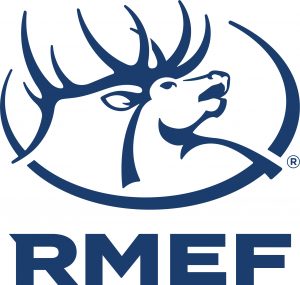
MISSOULA, Mont. — California received $6,664,333 in grant funding from the Rocky Mountain Elk Foundation and its partners for habitat improvement, elk-related scientific research and hunting heritage projects. RMEF directly granted $326,616 and leveraged $6,337,717 in partner dollars.
“Perhaps the most visible of these 11 projects is construction of the first structure of its kind in California specifically designed to allow elk and other ungulates to cross a busy roadway. It will restore a migratory route and reduce wildlife-vehicle incidents,” said Blake Henning, RMEF chief conservation officer. “Other notable projects includes three different studies to help ensure the future of elk in the state.”
There are 27 chapters and approximately 13,000 RMEF members in California.
“We recognize and salute our volunteers for raising these funds that are put back on the ground in their home state,” said Kyle Weaver, RMEF president and CEO.
Since 1988, RMEF and its partners completed 643 conservation and hunting heritage outreach projects in California with a combined value of more than $74.4 million. These projects protected or enhanced 192,011 acres of habitat and opened or improved public access to 24,266 acres.
Here is a sample of California’s 2020 projects, listed by county.
Colusa County
- Provide funding for the first ungulate-specific crossing structure in California to allow elk and other wildlife to cross State Route 20. Data from collared elk in the Cache Creek herd shows that the highway is a significant barrier thus putting them at risk for genetic isolation. The structure will connect subherds and open more than 50,000 acres of habitat.
Siskiyou County
- Provide funding to continue a multi-year study to estimate elk abundance and develop a better understanding of elk population dynamics, movement and space use on public and private lands in the Marble Mountains. Researchers previously deployed 153 GPS collars on cow elk and 141 VHF ear tags on calves. Findings will inform scientifically sound hunting proposals and identify key areas for habitat enhancement and conservation (also benefits Del Norte, Lassen, Modoc and Shasta Counties).
Statewide
- Provide funding to examine the genetic diversity of Rocky Mountain, Roosevelt and tule elk, all of which live in California. Researchers sequence DNA from all three subspecies by using genetic samples from hunter-harvested animals and fecal samples. Insights learned will assist with elk management.
Go here to see a list of all 11 projects.
Project partners include the California Department of Fish and Wildlife, California Department of Transportation, California Wildlife Conservation Board, Klamath and Shasta-Trinity National Forests, and other conservation, sportsmen, university, business and civic organizations.
About the Rocky Mountain Elk Foundation:
Founded more than 36 years ago, fueled by hunters and a membership of nearly 235,000 strong, RMEF has conserved more than 8 million acres for elk and other wildlife. RMEF also works to open and improve public access, fund and advocate for science-based resource management, and ensure the future of America’s hunting heritage. Discover why “Hunting Is Conservation™” at rmef.org or 800-CALL ELK.


